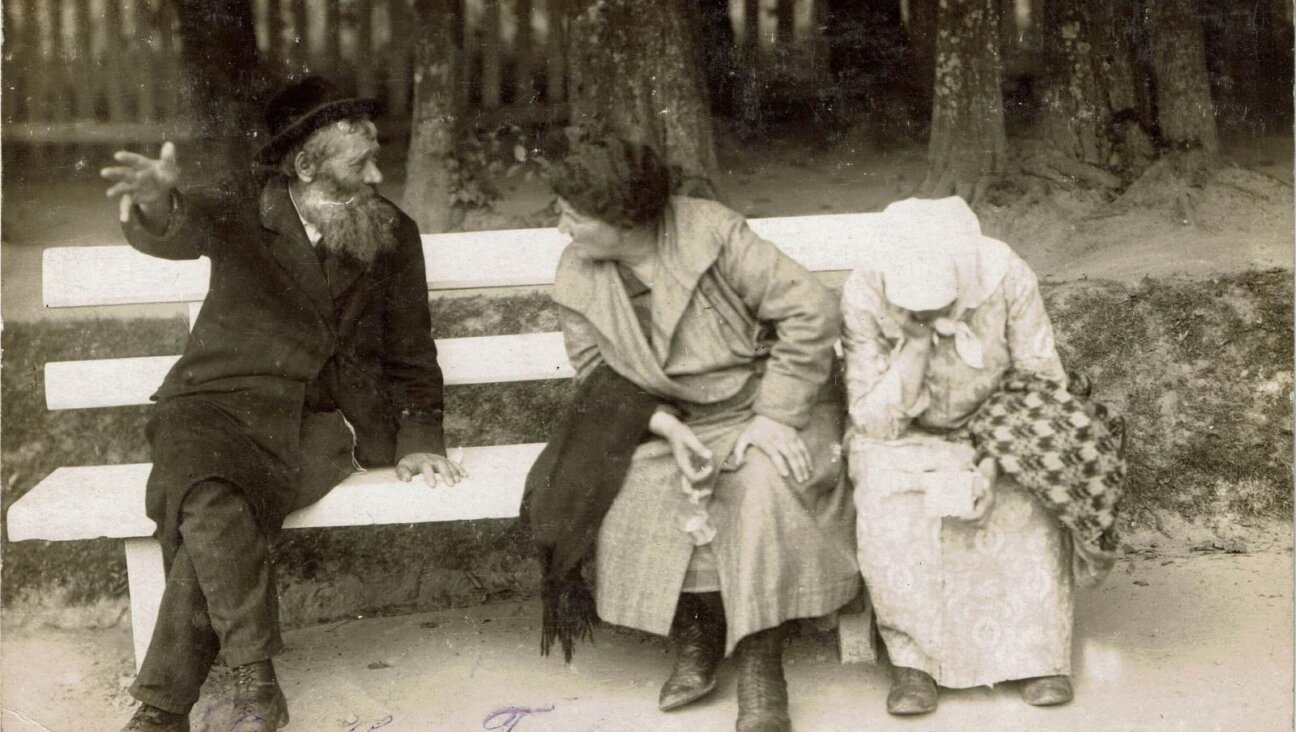Why Is Hillel Chief Eric Fingerhut Shunning J Street — and 1,000 Pro-Israel Students?

Eric Fingerhut Image by hillel
On Monday, I learned that the chance to speak to over 1,000 student pro-Israel activists is not enough to get Eric Fingerhut, President and CEO of Hillel International, in a room. I have two questions: why not, and if that’s not enough, what is?
Let’s start with the first: why did Fingerhut withdraw from the student session at the J Street conference? His stated reason is that he feels uncomfortable appearing at a conference where senior Palestinian official and chief negotiator Saeb Erekat will also speak. It’s worth pausing for a moment to consider what it would actually mean if Fingerhut really cancelled just because he was to be listed in the same program as Erekat.
It would mean that a venue kosher enough for Ehud Olmert, Tzipi Livni, Likud MK Tzachi Hanegbi, and Vice President Joe Biden (who have all appeared at past J Street Conferences) is not kosher enough for Eric Fingerhut. It would also mean noting that being listed alongside speakers who’ve made outlandish statements hasn’t deterred Fingerhut in the past. A few months ago, Fingerhut spoke at a Christians United for Israel (CUFI) event. CUFI’s founder, Pastor John Hagee, has stated that Hurricane Katrina was divine retribution for a “homosexual parade” planned in New Orleans.
That said, especially since Saeb Erekat had been announced as a speaker before Fingerhut initially decided that he would attend, we have serious questions about what actually motivated him to withdraw from the conference.
Let’s be honest. What reason could compel Fingerhut to renege on his commitment to speak to 1,000 student pro-Israel activists? That is his and Hillel’s job.
What or who is constraining Fingerhut from treating us like what we are: proud, passionate, pro-Israel Jewish students working to advance a better future for Israelis and Palestinians?
Which leads to the second question: if not 1,000 students, what is enough to get Fingerhut in the room? It’s hard to say, but we know now what doesn’t cut it. We know it’s not a enough to work towards a secure Israel living side by side with a future state of Palestine, liberated from occupation.
It’s certainly not enough to work closely with our campus Hillels, day in and day out, to promote pro-Israel, pro-peace politics. It’s not enough to speak for the majority of young Jews who support a two-state solution and think settlements and ongoing occupation are endangering Israel’s present and future.
In Hillel’s statement, Fingerhut wrote, “I apologize to the students who looked forward to my appearance,” and “I welcome J Street U students as members of the entire Hillel family.” But ultimately, actions speak louder than words.
Fingerhut had a choice: he could choose the students at the conference and the many thousands we represent, advocating for Israel’s Jewish and democratic future on campus, or he could choose right-wing donors and fringe communal voices who would rather snub J Street than let Hillel do its job. He chose the latter, and in doing so, whatever his intentions, sent a clear message to J Street U students and progressive students across the country: you are not good enough. The forces driving Hillel away from its students are more important than the students themselves and their tireless work.
But we have no intention of giving up. We believe that the Jewish community understands the mistake Fingerhut has made (to date, the only major organization supporting the decision is the far-right wing Zionist Organization of America). We know that Fingerhut’s public posture towards J Street U flies in the face of our work and relationships with Hillel on campus: many professionals have reached out to us to express their disappointment and support.
Most of all, we’re confident that students advocating for an end to the occupation are crucial to the Jewish community’s ongoing vitality, and have an important role to play in hugging and wrestling with Israel’s future. Fingerhut spurns us at his own peril.
Hillel directors, communal leaders, and anyone who cares about our students: speak out. Tell us. If you don’t believe that donors and politics should trump students, let Eric Fingerhut know. We’re waiting, and our door is always open.
Benjy Cannon is the President of the J Street U National Board and a senior at University of Maryland.
A message from our Publisher & CEO Rachel Fishman Feddersen

I hope you appreciated this article. Before you go, I’d like to ask you to please support the Forward’s award-winning, nonprofit journalism so that we can be prepared for whatever news 2025 brings.
At a time when other newsrooms are closing or cutting back, the Forward has removed its paywall and invested additional resources to report on the ground from Israel and around the U.S. on the impact of the war, rising antisemitism and polarized discourse.
Readers like you make it all possible. Support our work by becoming a Forward Member and connect with our journalism and your community.
— Rachel Fishman Feddersen, Publisher and CEO






















